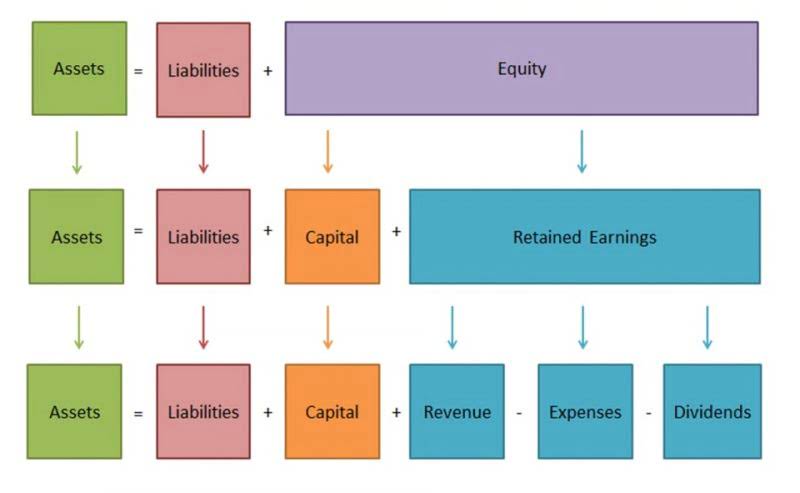
The full-charge bookkeeper’s steady hand ensures the business voyage remains prosperous and true. One of the primary obligations of a full-charge bookkeeper is to supply accurate and timely financial statements and reviews. Full-charge bookkeepers generate those reports and examine the financial data to offer valuable insights into the organization’s financial health. These insights aid business owners and stakeholders make informed decisions and strategic choices. In summary, a full charge bookkeeper and a regular bookkeeper differ in terms of their scope of work, level of autonomy, and salary.

Best Way to Build an In House Accounting Team
Some employers are willing to hire people who don’t have any previous experience in bookkeeping and instead provide on-the-job training (OJT). It’s always a good idea to do some level of onboarding regardless of a hire’s past experience. Proficiency is fundamental for full charge bookkeepers who manage all the accounting work done in a company. This knowledge affects the consistency and accuracy of financial statements and other reports. Knowing the regulation standards means full charge bookkeepers can help the business stay in compliance. They will perform tax-related and payroll tasks, coordinate tasks with certified public accountants, and prepare information for auditing purposes.

Responsibilities
Books and Balances offer an extensive range of bookkeeping services for small businesses, including full charge bookkeeping. The team of highly skilled professionals at Books and Balances is well-equipped to handle every aspect of bookkeeping. Here, we can handle everything from managing day-to-day financial transactions to preparing detailed financial reports. We go beyond typical bookkeeping duties by providing strategic insights to help businesses make informed financial decisions.
Final Thoughts on Full Charge Bookkeeping
- Either way, a good first step in the process is to secure a provider of outsourced accounting and bookkeeping services to help fill these demands.
- Attention to detail helps you identify discrepancies, reconcile accounts, and avoid costly mistakes.
- Books and Balances offer an extensive range of bookkeeping services for small businesses, including full charge bookkeeping.
- Bookkeepers are responsible for accurately calculating employee wages, taxes, and deductions.
- With a full charge bookkeeper at the helm, a business experiences increased efficiency in managing its finances.
- Instead of spending hours managing financial records, business owners can focus on strategic planning, sales, and customer relationship management.
In summary, full-charge bookkeeping encompasses a wide array of responsibilities that impact not only financial record-keeping but also the overall success of a company. As challenges arise, embracing technology, fostering communication, and adopting proactive strategies enable full-charge bookkeepers to excel. The https://www.bookstime.com/articles/absorption-costing general ledger is the central repository of an organization’s financial data. However, mistakes or omissions may additionally occur during regular statistics entry procedures. This process requires meticulous attention to detail, as even minor mistakes may lead to significant discrepancies in financial reporting.
- ” question and explain the job’s duties, responsibilities, educational requirements, and more.
- The balance sheet, income statement, and cash flow statement are typically prepared in conjunction with the month-end closing.
- In this case, the full charge bookkeeper position may be converted into an assistant controller position, with responsibility for some aspects of accounting operations.
- A full charge bookkeeper’s pay rate can also go higher for hourly freelance work versus guaranteed weekly or monthly salaries.
- Let’s take a closer look at each of these tasks and the importance they hold in maintaining accurate and organized financial records.
Managing Accounts Receivable
The pay range is generally from $15.04 to $30.27 per hour, depending on their experience and reliability. A full charge bookkeeper’s pay rate can also go higher for hourly freelance work versus guaranteed weekly or monthly salaries. A freelance full charge bookkeeper can quote a fee that follows the industry standards, flexible, of course, based on the scope of the work. For more specific salary information, consider researching average full charge bookkeeper salaries in your area. Knowing the right forms and documents to claim each credit and deduction is daunting.
What Is Full-Charge Bookkeeping?

Discover the of a full charge bookkeeper, their responsibilities, required skills, and why hiring one is crucial for business success. Because of this, employers often prefer candidates who have attained a higher degree in a relevant or related field. They also look more closely at years of experience and how well-versed they are in accounting and finance. A full charge bookkeeper is someone who will manage all the financial accounts of a business.
Get more advice on establishing better accounting and bookkeeping practices with our free guide below. There are several actions that could trigger this block including submitting a certain word or phrase, a SQL command or malformed data. Your earnings could differ based on factors like location, experience, education, what is a bookkeeper certifications, the client’s size, and whether you work in-house. With Taxfyle, your firm can access licensed CPAs and EAs who can prepare and review tax returns for your clients. Increase your desired income on your desired schedule by using Taxfyle’s platform to pick up tax filing, consultation, and bookkeeping jobs.
Full Charge Bookkeeping Management
Edith Tiilikkala Obituary – MA – Sentinel & Enterprise
Edith Tiilikkala Obituary – MA.
Posted: Sun, 02 Jun 2024 00:48:25 GMT [source]
When it comes to choosing your average bookkeeper versus a full charge bookkeeper, it primarily depends on the scope of the tasks you as a business owner wish them to perform. While regular bookkeepers record financial transactions, create reports, process payroll, and manage customer payments and invoices, a full charge bookkeeper’s tasks extend beyond this. They take on the additional role of accountant and usually have broader managerial responsibilities. As the term ‘full charge’ implies, a full charge bookkeeper takes on various tasks. They manage an organization’s bookkeeping needs, from recording financial transactions, processing invoices and payroll, reconciling bank statements, and preparing financial statements.
- That’s why this is the ideal option for mid to large-size growing companies that can afford to take this step.
- By possessing these skills, you can effectively contribute to the financial success of the business you work for.
- On the other hand, a regular bookkeeper typically follows established procedures and guidelines set by the full charge bookkeeper or the company’s management.
- By promptly following up on unpaid invoices, you can help improve cash flow and minimize the risk of bad debts.
- By outsourcing bookkeeping services, businesses can free up valuable time and resources that can be redirected towards core functions.
- In conclusion, the trends of automation and technology, outsourcing bookkeeping services, and the increasing demand in small businesses are shaping the industry of full charge bookkeeping.


